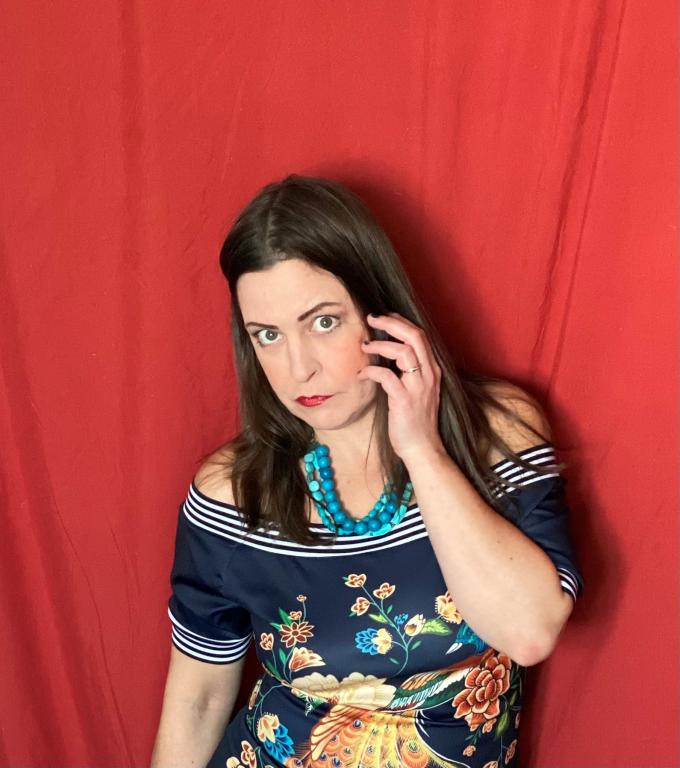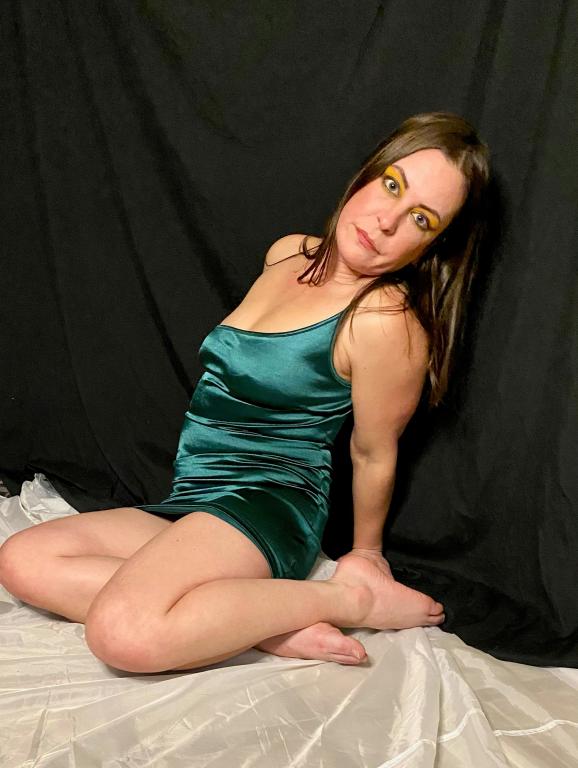
When I was almost 13, I was in a terrible car accident. I flew into the windshield. I suffered a severe concussion, lacerated my spleen, had internal bleeding, broke my arm, and had to undergo plastic surgery on my forehead and eyebrows. For the proceeding 5 years, I would undergo extensive forms of therapy and rehabilitation services to heal the brain damage I sustained that fateful November morning in 1993. Psychotherapists, psychiatrists, psychologists, neurologists, neuropsychologists, behavior therapy, you name it; if there was a head specialist around, I had visits with them. It’s really no surprise at all that I have an obsessive fascination with psychology.
I have been given a lengthy list of diagnoses over the decades. At 13, I was diagnosed with ADD. I also developed serious anger issues and my overall personality turned hostile and aggressive. I developed OCD tendencies, but I was scoring high on the IQ tests at a young age, despite the drop in straight A’s.
The therapists all agreed that my car accident and subsequent “brain damage” accounted for the changes in my behavior. I had to be very mindful of myself as a teen. I had to really think about my actions. I always had this fear that my choices weren’t going to be my choices and therefore overanalyzed a lot of decisions in life. The other decisions of my life were chosen with blatant disregard against caution and may have been made as a direct rebellion against all the diagnoses.
I turned into a violent person, too. I was always angry and always ready to throw down. I was the smallest kid in every class, for every year. I wasn’t 100lbs. soaking wet until I was in 11th grade. But I was a fighter. Friends who talked crap. Boyfriends that got too domineering and, in my face, even the boyfriends that put hands on me, I’d give it right back. It didn’t matter. I wasn’t afraid of a fight. As I got older, I learned to throw down with words, not fists. But the fight was still going, and I always wanted to win. My mother always attributed it to my car accident. And for a very long time, I used that as my ticket out of everything. I played that victim card until it disintegrated.
Throughout the years, into early adulthood, I was in and out of therapy and anger management sessions. I was treated for bipolar disorder and depression while I was a single mother. I suffered from post-partum depression for 2 years with my firstborn. I was always on anti-depressants, and I struggled with drinking. And lucky for me, more therapists agreed that my car accident contributed to my dysfunctions, patterns, and behavior.
I used every diagnosis I could as a catalyst card. The proof that I wasn’t solely responsible for my own actions. But then something unexpected started happening. All the diagnoses I have received over the years were being used against me in times where life got really heavy, and I lost control. “It’s because of the car accident.” “Her brain damage really fucked her up.” “The car accident made you a bitch.” “It’s because of the bipolar disorder.” “You’re just a bipolar bitch.” “It’s the post-partum.” “Remember, she’s depressed.” “It’s because you’re suicidal.” “You need therapy…again.!”
Why was it that when I used the car accident as my scapegoat it didn’t bother me, but when others did, I felt invalidated and diminished?
My car accident impacted me significantly. It also impacted others significantly. And to those who entered my life post-accident, it impacted them as well. It wasn’t just the incident itself it was the consequences of that incident that I let follow me around for decades. The trauma I carried and used as a way to shield myself from responsibility was a party trick. I gained popularity in school from the car accident. I was already the new kid in the school, but more so, I was that new kid that almost died in a car accident. What I recognized then was that my story could be a benefit to me. My story was so intriguing and exciting that everyone wanted to know about it. My scars were cool, too.
It was an unwitting program that I downloaded into my system to gain validation. And if I examine my history of the patterns and programs that may have caused user errors, I can honestly say that I was exploiting myself to gain attention and adoration. More than that, I exploited my trauma to skirt accountability.
This scene is regularly played out for the live streams in our everyday lives. People love to play the victim and the hero of their own story, but never the villain. When I look back on my own life, I was playing the villain. I was the bully. I was the accuser and the judge and jury. And I was the perpetual victim.
And when I started to take notice of that problematic pattern and worked at altering it, I lost a lot of people in my life. My own personal self-awareness made other people uncomfortable. When my mother or my father-in-law sought to accuse me and my “attitude” I actually started listening to them. I asked myself if there was any truth to what they said. A lot of people can’t handle that kind of honesty about themselves—thinking that their arch-nemesis might have a valid reason for opposing them. But that’s the beautiful thing about “enemies” in our life; they reflect an image of truth to us that when denied, really fucks with us and our other relationships. It’s to our benefit to examine all the accusations. It’s to our detriment to deny accusations simply based on the source.
The oddest thing happens when you take responsibility for your actions and validate another person’s feelings. For some, they get even more upset. It’s as if they had prepared a lecture to address key-point issues they presumed you’d complain about, and now they don’t get to use the laser pointer for their PowerPoint presentation. They expected arguments and you delivered acceptance and accountability. Now, what do they say?
People who are angry and hold onto resentment are comfortable in those very feelings they accuse you of creating for them. And they have already justified holding in all this anger for so long that when you take responsibility for participating in an original experience, it’s like you just took all the wind out of their sail toward argument annihilation.
I spent a lot of time defending the way I responded to certain people. I essentially justified having different personality presentations with specific individuals. This is the reason I treat so and so this way. The logic here is that if I can rationalize being foul and standoffish to one person, I can find good cause to treat everyone this way. For me, that meant I could find a way to treat Cory or my children this way. But that’s not very neighborly, is it?
You are to love your neighbor as you love yourself.
(Matthew 22:39)
When you pass by the beaten-down man on the side of the road, your decision to help that person reflects how you see your neighbor: as a human being worthy of the same care and consideration that you would want if in the same circumstance. Similarly, if your neighbor is asking you to stop offending them with your words or actions, you stop doing the thing that offends them. The neighbors that confronted my behavior, as spiteful and angry as they may be, deserve the same consideration of consequence as you would want if the roles were reversed.
My husband is my “neighbor”, as are my children. And for a time, my mother and father-in-law were my neighbors. So I took what they had to say to heart and made some changes.
Changes are a funny thing. I saw that I was compartmentalizing relationships and realized that it was harming the ones that mattered most to me. When I made strides to correct this way of interacting with people, it upset those that felt I was the problem all along. I think the reality is that it made them more aware of how shitty their own behavior was and since I was changing, they couldn’t blame me for the issues. When you can’t be another person’s scapegoat, that pisses them off more than an apology and personal accountability.
Pulling back to the present, there’s a lot of pain resurfacing. Since my physical injury has had me on bed rest, I have had a lot of time to really reflect on myself and my choices in life. Watching the wound scab over and heal reminds me of all the other scars that have been left on this body and all the injuries I have sustained over the years. The trauma of existence lies dormant until another physical blow rattles all the issues throughout the tissues. The pain of the past overrides the pain of the present. Could it be that’s why wounds take so long to heal as we age?
I can’t undo anything from my past. It’s in the past. I’d rather let it stay there. But I know that in the present moment if I am really living by my beliefs, I am striving to see God in every individual that I come into proximity with. If by seeing God, I see Truth, I must remember that the truth wounds us. It’s not going to come to use as a fluffy, puffy, soft, and cuddly stuffed animal. It may be delivered by demons. (That may be a Lucifer-inspired conclusion.)












